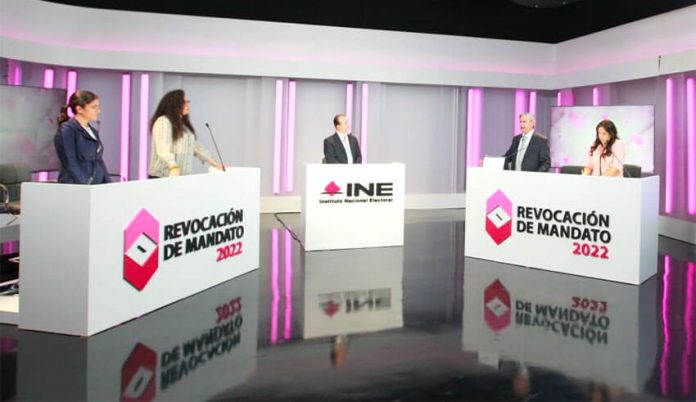Recall elections had a big year internationally in 2021, grabbing the spotlight in California and Taiwan. But 2022 is set to witness the recall on a whole other level as Mexican President Andrés Manuel López Obrador, widely known by the nickname AMLO, will be facing the voters on April 10.
While we’ve seen recalls in the United States’ largest state and against the presidents of both Venezuela and Romania, the Mexican presidential recall, dubbed a revocation of mandate vote, is by far the largest by population in history. Yet this recall has not grabbed the world’s attention as others have in the past. There’s a reason for that. AMLO not only does not fear the recall, he has welcomed it with open arms. He is hoping that it provides a boost for his political agenda. And if America’s recall history is any standard, there’s reason to think he’s right.
Mexico’s recall is very unusual in that it was originally proposed by AMLO as part of his election in 2018. From the beginning, he appeared to be the biggest supporter of a recall vote, encouraging his supporters to sign the petitions and get the more than 2.7 million valid signatures needed to get to the ballot. In fact, there is a movement by his opponents to boycott the recall vote.
The chance of removal is slim. For the recall to succeed, not only do a majority of voters have to cast ballots to remove AMLO, but 40% of registered voters have to turn out out to vote. This type of turnout law is uncommon in the U.S., though it is a regular feature elsewhere throughout the globe. In 2012, the president of Romania survived a recall due to low turnout, and so did the mayor of Warsaw, Poland, and officials in Taiwan.
While this type of law provides protection for the officials, it also creates the false perception that the officials sneaked through because voters didn’t show up. However, this low turnout is actually a winning strategy, even if it is a public relations debacle. AMLO’s recall is different in that he wants to win by an overwhelming margin, so he is not looking to use the 40% turnout law. He even said that he would abide by a decision even if the 40% threshold is not met. AMLO instead wants as high a turnout as possible. It is his opponents who are actually calling for people not to turn out.
What explains his actions? Some of his opponents originally feared that he would try to use a recall success to repeal the one six-year term limit for president. That does not seem to be the focus, but he clearly does want the recall to be treated as a chance to ratify his term, strengthening his position in dealing with Congress and others. A strong performance will certainly assist him.
In the U.S., we have not had actual promotion by politicians of their own recall in this fashion, though we have elected officials try to use the recall laws in a tactical fashion. In 2021, a Seattle councilwoman tried to get supporters to sign petitions against her in order to speed up the recall vote and have it timed with a regularly scheduled election (this did not work, though she survived the final vote). In 2012, supporters of Wisconsin Governor Scott Walker submitted papers for an early recall push in order to assist him in raising funds under a very loose recall law.
While recalls have a strong success rate in the U.S., officials who survived – and sometimes those who lose – can see a big benefit to their political careers. California state Senator Jeff Denham survived a recall vote in 2008. He was later elected to Congress. The same thing happened with Wisconsin State Senator Scott Fitzgerald after his recall triumph in 2012. San Francisco Mayor Dianne Feinstein easily beat back a recall in 1983. The next year, she was being discussed for vice president. Now, she is the longest-serving U.S. senator in California history.
California Governor Gavin Newsom is about to test this theory himself. Many observers, as well as history, suggest that 2022 could be a challenging, if not disastrous election year for Democrats. Yet all of the major Republican contenders have backed out of running against Newsom in his reelection run.
After an overwhelming victory in the recall vote, Newsom has frightened off seemingly all of the most serious contenders. The result may be that he glides to victory even in a difficult environment, but due to not having a strong Republican opponent, he also helps Democrats lower down on the ticket, including some key Congressional races. Newsom is already being discussed as a potential presidential contender down the road.
AMLO may be facing the voters early this year, but unlike other officials throughout the world, it is not due to opponent anger or hope for an electoral triumph. Rather, he is hoping for a boost from a vote of confidence by the voters. There’s a good chance he will get it.
Joshua Spivak is a senior fellow at the Hugh L. Carey Institute for Government Reform at Wagner College. He is the author of Recall Elections: From Alexander Hamilton to Gavin Newsom and writes the Recall Elections Blog.
